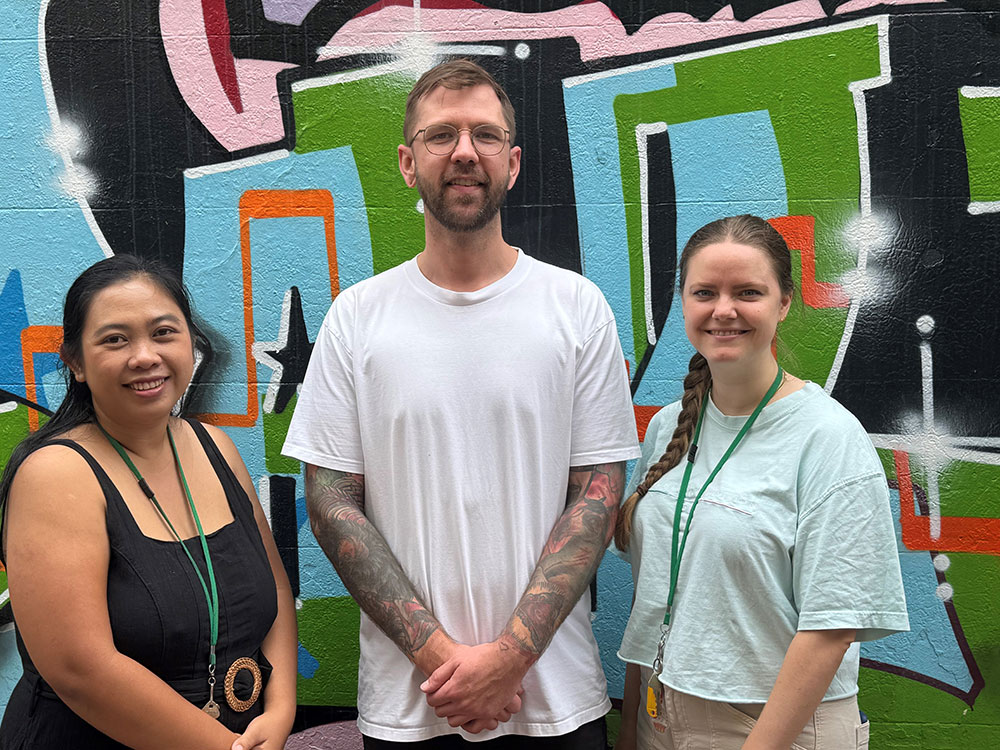A new scientific cooperation agreement for the Pacific will boost climate change risk and adaptation management, environmental protection and sustainable development for current and future generations across the region.
The five-year Memorandum of Understanding (MoU) was signed at COP28 in Dubai by the Secretariat of the Pacific Regional Environment Program (SPREP) and CSIRO, Australia’s national science agency.
The agreement builds on a partnership, established in 2016, which has yielded programs like the , recently launched in Port Vila. The Portal is providing climate information, projections and decision-support tools in easy-to-understand formats to help adaptation and decision-making across agricultural, infrastructure, fisheries, tourism and water sectors.
The partnership emphasises co-design and co-delivery of Pacific research programs across SPREP’s core business of climate change resilience; island and ocean ecosystems; environmental monitoring; governance and waste management and pollution control.
The jointly designed and delivered programs will support evidence-based science for risk management and broader decision-making for Pacific countries across environmental science domains, including:
- Climate change science and services;
- Integrated climate impact, vulnerability and risk assessments;
- fisheries and marine coastal resources and ecosystems; and
- Ocean scale physical systems monitoring, modelling and assessment.
The MOU also encompasses:
- Food systems modelling, analysis and assessment planning;
- Plastics and other waste modelling, assessment and management;
- Water security assessments and modelling; and
- Energy transition modelling, assessment and planning.
SPREP Director General, Mr Sefanaia Nawadra, said SPREP was honoured to continue their partnership with CSIRO.
“Our partnership with CSIRO has yielded country-focussed climate change science research and information which is already being used by our operational agencies,” SPREP Director General, Mr Nawadra said.
“SPREP’s focus isn’t just around helping Pacific island countries address climate change. We’re also seeking to tackle the biodiversity, environmental governance, waste and pollution issues that Pacific island countries face.
“SPREP brings a convening capacity to enable the translation of science into tangible actions. We are very excited to continue this collaboration, which will undoubtedly yield more benefits in policy and steps taken to address climate change.”
CSIRO’s Director of the Climate Science Centre, Dr Jaci Brown, said the agreement allows both parties to build on the synergies, successes and lessons learnt to date — applying them to a broader range of environmental issues across the region while drawing on a broader scope of technical capability from across CSIRO.
“The co-design approach developed in our work to date has produced something quite special: up-to-date climate information, projections and tools provided in formats relevant to those who need it most – those planners, decision-makers and communities already grappling with the challenges of climate change and planning for their futures,” Dr Brown said.
“The risks associated with climate change are a reality across the Pacific region. Climate change is also exacerbating food security, biodiversity, energy systems and waste management challenges. We want to continue to build on the knowledge sharing between CSIRO scientists and Pacific islanders to tackle a broader range of issues faced across the region.”
The 28th Conference of the Parties to the UN Framework Convention on Climate Change (UNFCCC COP28) is being held in Dubai, United Arab Emirates, from 30 November to 12 December 2023.
About SPREP
The Secretariat of the Pacific Regional Environment Programme () is the lead regional organisation for the protection and sustainable development of Pacific island environments.
With headquarters in Apia, Samoa, SPREP works closely with its 26 Member countries and territories – along with partners, donors and local communities – to deliver on environmental management and sustainable development in the region in four priority areas: Biodiversity and Ecosystem Management, Waste Management and Pollution Control, Climate Change Resilience and Environmental Monitoring and Governance.
About CSIRO
is Australia’s national science agency and innovation catalyst. We solve the greatest challenges through innovative science and technology. Our collaborative research turns science into solutions for food security and quality; clean energy and resources; health and wellbeing; resilient and valuable environments; innovative industries; and a secure Australia and region.








